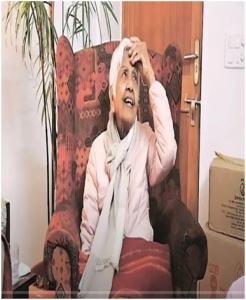National Emergency of 1975 Challenged in Indian Supreme Court

![]()
News Desk
National Emergency of 1975 been challenged in Indian Supreme Court. The Court has considered to hear a 94-year-old widow, Mrs Veera Sarin who wants the Emergency proclaimed in 1975 to be “wholly unconstitutional”.

Veera Sarin said she and her family were victims of the excesses of that “grave and dark period of our nation’s history”. A three-judge Bench led by Justice Sanjay Kishan Kaul will hear the petition represented by advocates Anannya Ghosh and Neela Gokhale.
Their gold jewelry and diamond business based in Karol Bagh and Connaught Place in the National Capital were plundered by the government authorities during the Emergency, when civil rights and liberties were suspended.
Her husband never recovered from the shock of the family business going under. He was slapped with cases, they were threatened by the police and their family properties were raided repeatedly. One of the cases foisted against her husband, H.K. Sarin, under the Smugglers and Foreign Exchange Manipulators (Forfeiture of Property) Act of 1976 continued from 1975 to 2014 until the Delhi High Court declared it a “nullity”.
Even then, it took another three years, on July 28 this year, to get a partial compensation for the government’s “illegal possession” of their immoveable properties. Ms. Sarin has sought a compensation of 25 crore rupees.
“The petitioner is 94 years old and seeks closure to the trauma of her lifetime, which still resonates in her mind, “the petition said.
“Even as on date, the movable properties including jewelry, artefacts, figurines, paintings, sculptures, and other valuables have still not been reinstituted to her family. The petitioner is entitled to be compensated for the acts, deeds and things done under the authority of the government,” it said.
In India, “The Emergency” refers to a 21-month period from 1975 to 1977 when Prime Minister Indira Gandhi had a state of emergency declared across the country. Officially issued by President Fakhruddin Ali Ahmed under Article 352 of the Constitution because of the prevailing “internal disturbance”, the Emergency was in effect from 25 June 1975 until its withdrawal on 21 March 1977. The order bestowed upon the Prime Minister the authority to rule by decree, allowing elections to be suspended and civil liberties to be curbed. For much of the Emergency, most of Indira Gandhi’s political opponents were imprisoned and the press was censored. Several other human rights violations were reported from the time, including a mass forced sterilization campaign spearheaded by Sanjay Gandhi, the Prime Minister’s son. The Emergency is one of the most controversial periods of independent India’s history.